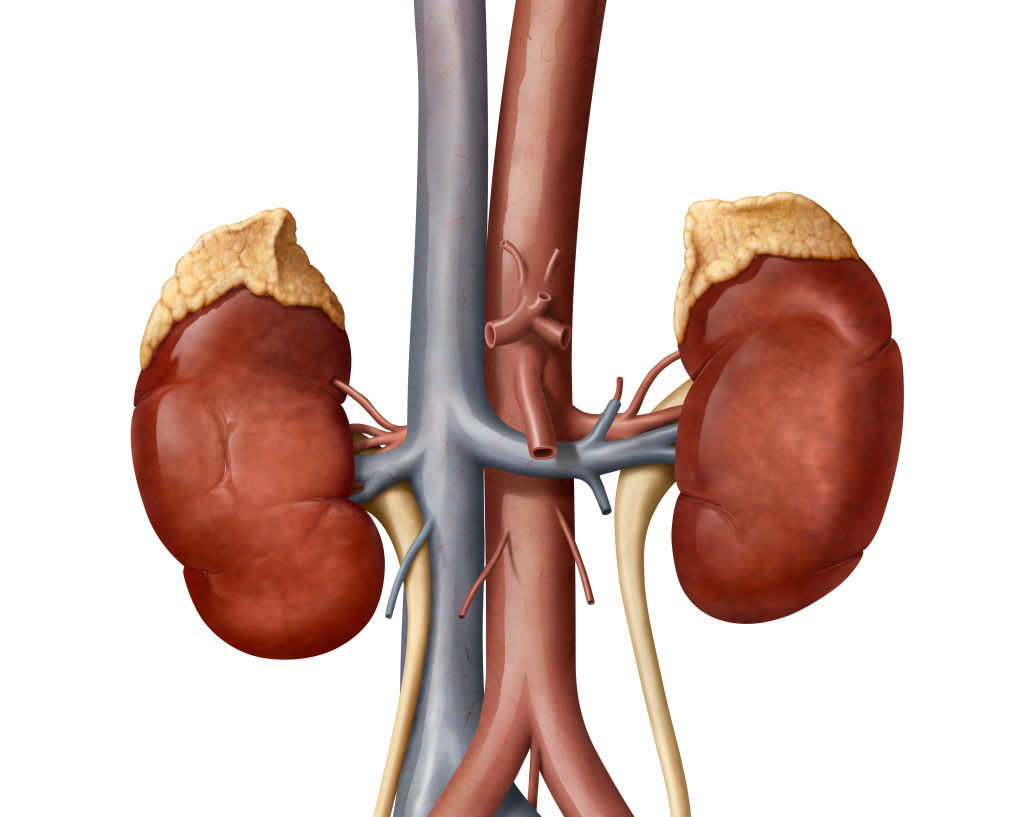
A rare, inherited endocrine disorder whose standard treatments are steroids that introduce a wide range of side effects now has a new FDA-approved therapy, a non-steroidal Neurocrine Biosciences drug that could give the company another blockbuster seller.
The FDA late Friday handed out two approvals for the Neurocrine drug crinecerfont as a treatment for classic congenital adrenal hyperplasia (CAH), a disease that leads to a hormone imbalance that can become fatal. A pill formulation of the San Diego-based biotech’s drug was approved for adults. An oral solution was approved for children age 4 and older. Both formulations will be marketed under the brand name Crenessity. The company claims it’s the first new CAH treatment in 70 years.
CAH is an inherited disorder that affects the ability of adrenal glands to produce cortisol, a glucocorticoid hormone that plays a role in tissues and organs throughout the body. Low cortisol levels lead to increased secretion of two other hormones, adrenocorticotropic hormone (ACTH) and androgens. Without treatment, CAH leads to salt wasting (low levels of sodium that affect the brain and kidneys) and dehydration. Extremely low blood levels of cortisol can lead to adrenal crisis, a life-threatening complication.
Standard CAH treatment includes synthetic versions of glucocorticoids intended to make up for deficient cortisol. But patients need higher doses than what is normally produced by the body to lower levels of ACTH and adrenal androgens. These supraphysiologic doses bring a wide range of complications associated with steroids, including weight gain, diabetes, cardiovascular disease, and osteoporosis. High GC doses can also have psychological and cognitive impacts.
Crenessity is an oral small molecule designed to block the corticotropin-releasing factor type 1 receptor. Doing so inhibits secretion of ACTH from the pituitary gland, which in turn reduces production of adrenal androgens. FDA approval of Crenessity is based on results of a global Phase 3 study in adults and children that showed the drug led to significant glucocorticoid dosing reductions compared to placebo after 24 weeks of treatment. The most common adverse reactions reported in the study included fatigue, headache, dizziness, and muscle and joint pain. Neurocrine said these side effects were temporary and mild to moderate in severity.
The FDA approval covers the use of Crenessity as an adjunct to glucocorticoid replacement. For adults, the drug is a twice daily pill. For children age 4 and older, dosing of the oral solution is according to patient weight. In a note sent to investors Monday, William Blair analyst Myles Minter said the drug’s label is nonrestrictive, permitting treatment of a broad range of CAH patients whether or not clinicians adjust dosing of glucocorticosteroids in patients receiving the two therapies together. Neurocrine said it would disclose Crenessity’s price when the product becomes available later this week.
William Blair projects Crenessity will carry a $1,116 per dose price, which works out to about $264,784 per year — falling within the price range of orphan disease drugs. The new Neurocrine drug could achieve about $150 million in 2025 revenue, the firm projects. Peak global sales could reach $1.47 billion depending on regulatory approvals in other markets.

Integrating GLP-1s: How Berry Street is Redefining Nutrition Care
Richard Fu details the company's approach to nutrition therapy and strategy for patients using GLP-1s.
“We see significant potential in the CAH market but acknowledge that for this to be a blockbuster $1 billion-plus commercial opportunity, there will need to be both patient and clinician education that supraphysiological glucocorticoid dosing would no longer be the only way to control androgen levels and prevent adrenal crises,” Minter wrote. “With this in mind, we view education activities and partnering with patient advocacy groups like the CARES Foundation as prudent steps ahead of the launch.”
Neurocine expanded in endocrine disorders with the 2022 acquisition of Diurnal Group, a Wales-based company whose commercialized products include CAH drug Efmody, a hydrocortisone drug approved for treating CAH in adults and adolescents. At the time of the deal, Crenessity had reached Phase 3 testing. Neurocrine described the Diurnal acquisition as a way to add clinical development and commercial infrastructure in the U.K.
The main revenue driver for Neurocrine is Ingrezza, which in 2017 became the first FDA-approved drug for the chronic movement disorder tardive dyskinesia. In the first nine months of 2024, the company reported $1.69 billion in Ingrezza sales, a 27% increase compared to the same period in the prior year. That drug alone accounts for 99% of Neurocrine product revenue, according to the company’s financial reports.
FDA approval of Crenessity comes with a priority review voucher that Neurocrine may apply toward speedier regulatory review of a future rare disease drug. But most companies awarded these vouchers sell them to big pharmaceutical companies. Acadia Pharmaceuticals and PTC Therapeutics both received vouchers along with the recent FDA approvals of their respective rare disease drugs. Each voucher sold for $150 million.
Illustration: QAI Publishing/Universal Images Group, via Getty Images








